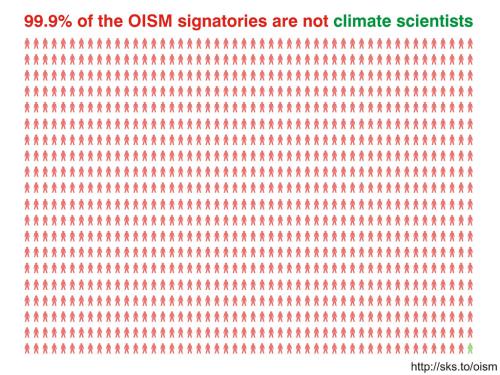Climate Denial Video #3: Polluters Use Same Tactics As Tobacco Industry
Posted on 7 August 2011 by John Cook
Many thanks to Dana who posted the first two of the Climate Denial video series while I was on holiday (although he was getting a bit silly towards the end - James Earl Jones!?!). In this third video collaboration with Treehugger, who I must say have created some fantastic animation, we examine a common tactic of all movements that seek to deny a scientific consensus - the raising up of fake experts. The tobacco industry did it with the Whitecoat Project - climate deniers do it with the Petition Project.
Funnily enough, just last week, I created a new infographic that vividly showed the misleading nature of the Petition Project by showing just how many of their "experts" are actual climate scientists.
Pity I hadn't thought of the graphic earlier - would've been interesting to see how Treehugger might have animated it.































 Arguments
Arguments































[DB] Hey, thanks for taking the time to post a comment!
To add to Dales's comment below, Climatologist Ken Caldeira and others have extensively researched that question. Dr. Caldeira posts this Op-Ed on the subject:
Emphasis added. Essentially, planting trees outside the tropics either does not reduce global warming or adds to the problem. There's just not enough tropics to plant by an order of magnitude...
[DB] You should seriously rethink your maths here.
The phrase not even wrong comes to mind.
[DB] Perhaps you have forgotten the Denominator: It is indeed what is best in life...
[DB] Spot-on, sir. Well-done.